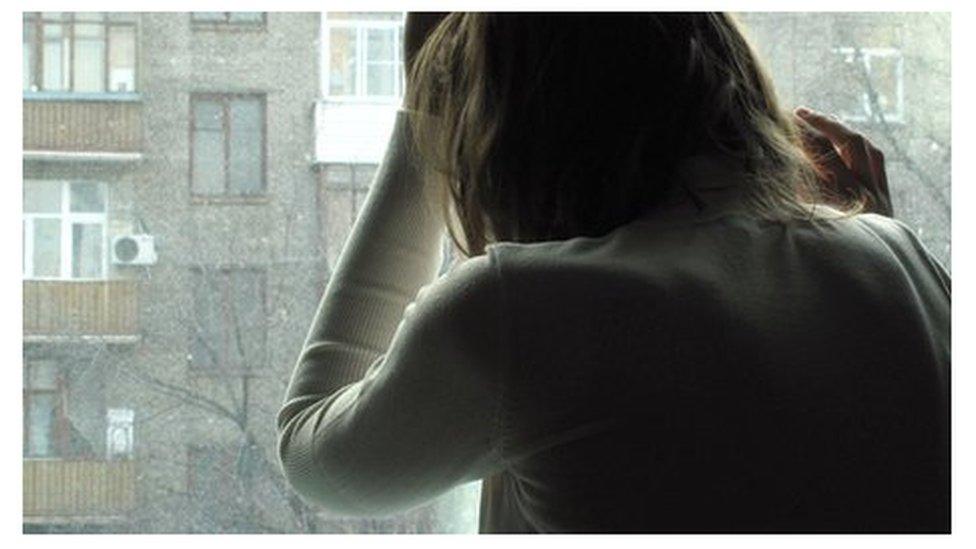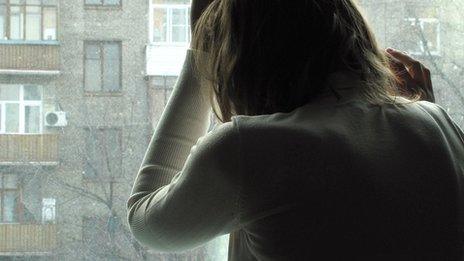Domestic violence: Russia MPs back law cutting penalty
- Published

A Russian bill to decriminalise some forms of domestic violence has moved a step closer to becoming law.
The lower house of parliament, the Duma, overwhelming approved the proposal after a second reading.
First time offenders who cause less serious injuries could face fines or community service rather than prison, under the plans.
But campaigners said the bill would mean the "exoneration of tyrants in the home".
MPs voted 358 to two in favour of the proposals, with one abstention. The bill, dubbed the "slapping law" by some Russian media outlets, will now have a third reading.
It will also need the approval of the upper house and President Vladimir Putin before becoming law.
Kremlin spokesman Dmitry Peskov said it was important to distinguish between "family relations" and repeated incidents of violence.
Greater risk
Conservatives began campaigning on the issue in July after a change in the criminal code made beating a family member a criminal offence.
They argued that the decision would mean parents could be prosecuted for disciplining their children.
Under the proposals, a first offence would be prosecuted under civil rather than criminal law. Subsequent incidents could still be considered criminal offences and carry potential jail terms.
Andrei Isayev, an MP for President Putin's United Russia party, told the Associated Press: "This is a historic vote because in certain countries the state's role in family life is way too much. Today's vote will end such practices in the Russian Federation."
But opponents said the law would put women and children at greater risk of violence.
Maria Mokhova, executive director of the "Sisters" crisis centre for abuse victims, told Reuters: "This law calls for the exoneration of tyrants in the home.
"The message is: 'Let's not punish a person who at home beat up his family, just because he has the right to do that.'"
Official data on domestic violence in Russia is very limited, but estimates based on regional studies suggest that each year 600,000 women face physical and verbal abuse in the home and 14,000 die from injuries inflicted by their husbands or partners.
'Kitchen boxing'
Women rights activist Alena Popova ridiculed the bill in a tweet: "The authorities see only benefits behind domestic violence: 1. Many won't live until retirement age; 2. People will be busy with self-destruction and will not criticise the authorities."
Ms Popova's petition calling for comprehensive legislation against domestic violence has reached more than 225,000 signatures.
Some social media users made light of the law. "Boxing in the kitchen is now legalised," one VKontakte post said.
But other men spoke directly against the plans. "It is not a laughing matter. Domestic violence will flourish. I consider this bill anti-national," another VKontakte user wrote.
"I feel shame for such a Duma. Punishment for family violence should be harsher. No-one has the right to raise their hand against a human, a living being," said a woman on Facebook.
Correction 27 January 2017: An earlier version of this story incorrectly said that Yelena Mizulina had introduced the bill.
- Published12 January 2017

- Published1 March 2013
